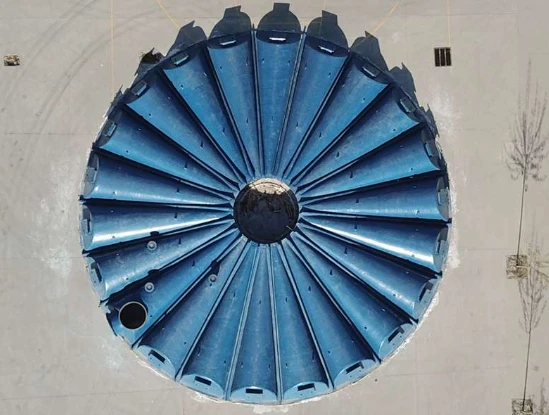
-
 Afrikaans
Afrikaans -
 Albanian
Albanian -
 Amharic
Amharic -
 Arabic
Arabic -
 Armenian
Armenian -
 Azerbaijani
Azerbaijani -
 Basque
Basque -
 Belarusian
Belarusian -
 Bengali
Bengali -
 Bosnian
Bosnian -
 Bulgarian
Bulgarian -
 Catalan
Catalan -
 Cebuano
Cebuano -
 China
China -
 China (Taiwan)
China (Taiwan) -
 Corsican
Corsican -
 Croatian
Croatian -
 Czech
Czech -
 Danish
Danish -
 Dutch
Dutch -
 English
English -
 Esperanto
Esperanto -
 Estonian
Estonian -
 Finnish
Finnish -
 French
French -
 Frisian
Frisian -
 Galician
Galician -
 Georgian
Georgian -
 German
German -
 Greek
Greek -
 Gujarati
Gujarati -
 Haitian Creole
Haitian Creole -
 hausa
hausa -
 hawaiian
hawaiian -
 Hebrew
Hebrew -
 Hindi
Hindi -
 Miao
Miao -
 Hungarian
Hungarian -
 Icelandic
Icelandic -
 igbo
igbo -
 Indonesian
Indonesian -
 irish
irish -
 Italian
Italian -
 Japanese
Japanese -
 Javanese
Javanese -
 Kannada
Kannada -
 kazakh
kazakh -
 Khmer
Khmer -
 Rwandese
Rwandese -
 Korean
Korean -
 Kurdish
Kurdish -
 Kyrgyz
Kyrgyz -
 Lao
Lao -
 Latin
Latin -
 Latvian
Latvian -
 Lithuanian
Lithuanian -
 Luxembourgish
Luxembourgish -
 Macedonian
Macedonian -
 Malgashi
Malgashi -
 Malay
Malay -
 Malayalam
Malayalam -
 Maltese
Maltese -
 Maori
Maori -
 Marathi
Marathi -
 Mongolian
Mongolian -
 Myanmar
Myanmar -
 Nepali
Nepali -
 Norwegian
Norwegian -
 Norwegian
Norwegian -
 Occitan
Occitan -
 Pashto
Pashto -
 Persian
Persian -
 Polish
Polish -
 Portuguese
Portuguese -
 Punjabi
Punjabi -
 Romanian
Romanian -
 Russian
Russian -
 Samoan
Samoan -
 Scottish Gaelic
Scottish Gaelic -
 Serbian
Serbian -
 Sesotho
Sesotho -
 Shona
Shona -
 Sindhi
Sindhi -
 Sinhala
Sinhala -
 Slovak
Slovak -
 Slovenian
Slovenian -
 Somali
Somali -
 Spanish
Spanish -
 Sundanese
Sundanese -
 Swahili
Swahili -
 Swedish
Swedish -
 Tagalog
Tagalog -
 Tajik
Tajik -
 Tamil
Tamil -
 Tatar
Tatar -
 Telugu
Telugu -
 Thai
Thai -
 Turkish
Turkish -
 Turkmen
Turkmen -
 Ukrainian
Ukrainian -
 Urdu
Urdu -
 Uighur
Uighur -
 Uzbek
Uzbek -
 Vietnamese
Vietnamese -
 Welsh
Welsh -
 Bantu
Bantu -
 Yiddish
Yiddish -
 Yoruba
Yoruba -
 Zulu
Zulu
fiberglass fertilizer tanks
The Benefits of Fiberglass Fertilizer Tanks
In today's agronomy practices, the efficient storage and management of fertilizers are crucial for maximizing crop yields and ensuring environmental safety. Among the various solutions available, fiberglass fertilizer tanks have emerged as an innovative option for farmers and agricultural businesses. Fiberglass tanks offer a myriad of advantages that contribute to their popularity in the industry. This article will explore the benefits of fiberglass fertilizer tanks, their applications, and why they are becoming the storage solution of choice for many agricultural entities.
Durability and Longevity
One of the most significant advantages of fiberglass tanks is their exceptional durability. Fiberglass is known for its resistance to corrosion and harsh chemicals, making it an ideal material for storing fertilizers, which can often be caustic or reactive. Unlike traditional materials such as steel or polyethylene, fiberglass tanks are less likely to degrade over time. This longevity translates into lower maintenance costs and a longer lifespan, which is essential for farmers looking to invest in long-term storage solutions. With proper care, a fiberglass tank can last several decades, offering reliable service across many growing seasons.
Lightweight and Easy to Install
Fiberglass tanks are also considerably lighter than their metal counterparts. This feature simplifies transportation and installation, significantly reducing labor costs. Farmers can quickly set up these tanks without requiring heavy machinery or extensive groundwork, which is particularly beneficial for smaller operations or those with limited resources. Furthermore, the ability to easily relocate fiberglass tanks allows for flexibility in storage solutions as agricultural needs change over time.
Resistance to Weather Conditions
Agriculture is subject to various environmental factors, including extreme temperatures, UV radiation, and heavy rainfall. Fiberglass tanks are engineered to withstand these conditions effectively. Their UV-resistant properties prevent degradation from sun exposure, while their insulating characteristics help protect the contents from temperature fluctuations. As a result, farmers can be assured that their fertilizers remain in optimal condition, unaffected by the elements, and ready for use when needed.
fiberglass fertilizer tanks

Cost-Effectiveness
Although the upfront cost of fiberglass tanks may be higher than traditional storage solutions, their long-term cost-effectiveness becomes apparent when considering maintenance and replacement expenses. Given their durability and low maintenance requirements, fiberglass tanks can save farmers money over time. Additionally, their lightweight construction can lead to lower transportation fees and installation costs, making them a smart investment for agricultural businesses.
Environmental Impact
In today's world, sustainability is increasingly becoming a priority for farmers and consumers alike. Fiberglass tanks are manufactured in a way that often minimizes environmental impact. They can be produced using recycled materials, and their long lifespan reduces the need for frequent replacements, leading to less waste. Additionally, fiberglass does not leach harmful chemicals into the soil or groundwater, aligning with environmental safety standards. Farmers can feel confident that using fiberglass tanks for fertilizer storage not only benefits their operations but also supports sustainable agricultural practices.
Versatility and Customization
Fiberglass fertilizer tanks come in various sizes and designs, offering excellent versatility for different farming needs. From small-scale operations to large agribusinesses, there is a fiberglass tank solution available for everyone. Customization options allow farmers to tailor their tanks according to specific storage requirements, maximizing efficiency and usability.
Conclusion
Fiberglass fertilizer tanks represent a significant advancement in agricultural storage technology. Their durability, lightweight nature, resistance to environmental conditions, cost-effectiveness, and positive environmental traits position them as a superior option for fertilizer storage. As the agricultural industry continues to evolve, embracing innovative solutions like fiberglass tanks will be essential for maximizing efficiency and sustainability. Whether for small family farms or larger agricultural enterprises, the benefits of fiberglass fertilizer tanks are undeniable, making them a wise choice for modern farming operations.









